
The Heartbeat of the Mekong Delta: Can Tho
Nestled in the heart of the Mekong Delta, Can Tho is a city that encapsulates the essence of riverine Vietnam. Known for its vibrant floating markets, Can Tho offers a unique glimpse into the daily life of the delta's residents. The Cai Rang Floating Market is a must-see, where traders on boats sell fresh produce, local delicacies, and handmade crafts. The bustling atmosphere and the colorful array of goods create an unforgettable experience. Beyond the markets, Can Tho is a city of culture and history. The Binh Thuy Ancient House is a beautiful example of French colonial architecture, set amidst lush gardens. This historical landmark offers a window into the past, showcasing the blend of Vietnamese and French influences. For a spiritual experience, visit the Ong Pagoda, an ornate temple that stands as a testament to the city's Chinese heritage. Nature lovers will find solace in the Bang Lang Stork Sanctuary, a haven for birdwatching and a serene escape from the city's hustle. The sanctuary is home to thousands of storks and other bird species, making it a perfect spot for photography and relaxation. Can Tho's winding canals and lush orchards offer scenic boat rides, providing a peaceful way to explore the natural beauty of the Mekong Delta.
Local tips in Can Tho
- Visit Cai Rang Floating Market early in the morning for the best experience and freshest produce.
- Bring insect repellent when visiting the Bang Lang Stork Sanctuary to stay comfortable.
- Hire a local guide to gain deeper insights into the history and culture of Can Tho.
- Try local delicacies such as 'Banh Xeo' (Vietnamese pancake) and 'Hu Tieu' (noodle soup) for an authentic taste of the region.
- Wear comfortable shoes as you may need to walk on uneven surfaces in markets and historical sites.
The Heartbeat of the Mekong Delta: Can Tho
Nestled in the heart of the Mekong Delta, Can Tho is a city that encapsulates the essence of riverine Vietnam. Known for its vibrant floating markets, Can Tho offers a unique glimpse into the daily life of the delta's residents. The Cai Rang Floating Market is a must-see, where traders on boats sell fresh produce, local delicacies, and handmade crafts. The bustling atmosphere and the colorful array of goods create an unforgettable experience. Beyond the markets, Can Tho is a city of culture and history. The Binh Thuy Ancient House is a beautiful example of French colonial architecture, set amidst lush gardens. This historical landmark offers a window into the past, showcasing the blend of Vietnamese and French influences. For a spiritual experience, visit the Ong Pagoda, an ornate temple that stands as a testament to the city's Chinese heritage. Nature lovers will find solace in the Bang Lang Stork Sanctuary, a haven for birdwatching and a serene escape from the city's hustle. The sanctuary is home to thousands of storks and other bird species, making it a perfect spot for photography and relaxation. Can Tho's winding canals and lush orchards offer scenic boat rides, providing a peaceful way to explore the natural beauty of the Mekong Delta.
When is the best time to go to Can Tho?
Iconic landmarks you can’t miss
Trúc Lâm Phương Nam Zen Monastery
Experience tranquility and spiritual beauty at Trúc Lâm Phương Nam Zen Monastery in Cần Thơ, Vietnam - a perfect destination for reflection and peace.
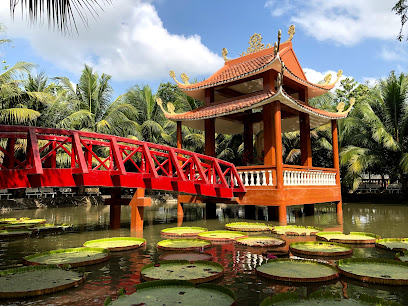
Luu Huu Phuoc Park
Discover the natural beauty and tranquility of Luu Huu Phuoc Park in Can Tho, a perfect spot for relaxation and exploration in Vietnam.
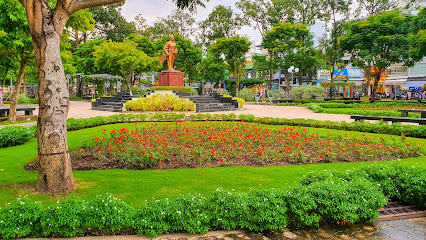
Cai Rang Floating Market
Discover the colorful Cai Rang Floating Market in Vietnam, where the vibrant culture of the Mekong Delta comes to life through bustling boat commerce and delicious local cuisine.
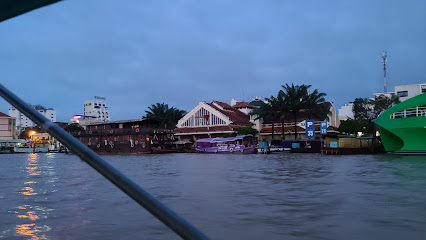
LOTTE Mart Can Tho
Discover the vibrant shopping experience at LOTTE Mart Can Tho, where local culture meets modern convenience in the heart of Vietnam.
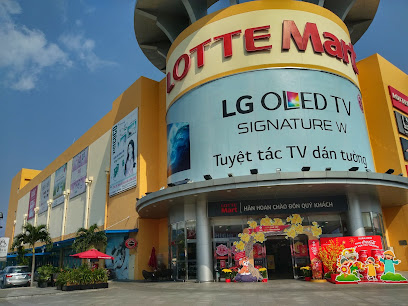
Sense City Can Tho
Explore the vibrant blend of modernity and tradition at Sense City Can Tho, a premier business center with shopping, dining, and cultural experiences.
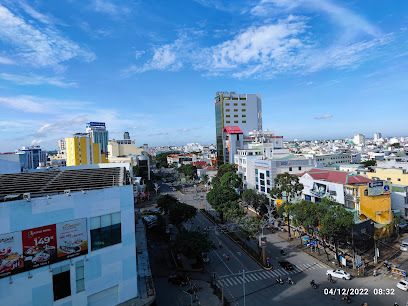
My Khanh Tourist Village
Experience the vibrant culture and delicious cuisine at My Khanh Tourist Village, a must-visit in Can Tho, Vietnam.
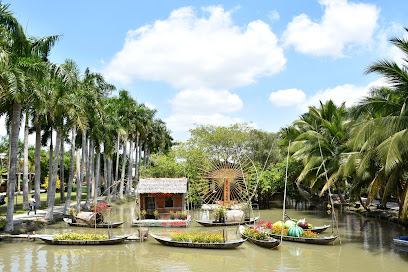
Song Hau Park
Explore the lush landscapes and tranquil ambiance of Song Hau Park, a serene escape in Cần Thơ, Vietnam, perfect for relaxation and family fun.
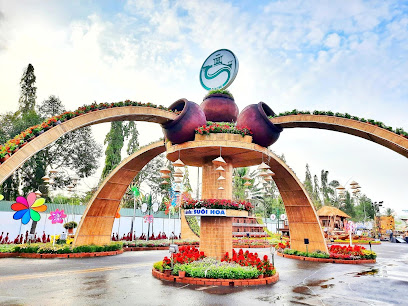
Victoria Can Tho Resort
Discover tranquility and luxury at Victoria Can Tho Resort, the perfect escape in the heart of Vietnam's Mekong Delta.

Binh Thuy ancient house
Discover the captivating history and architectural beauty of Binh Thuy Ancient House, a must-visit cultural gem in Can Tho, Vietnam.
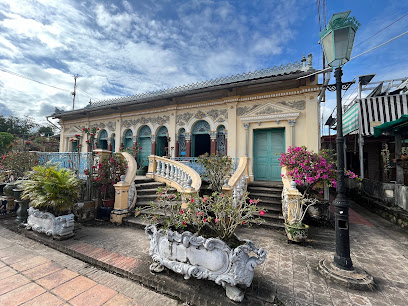
Can Tho Market
Discover the vibrant Can Tho Market, a cultural gem in Vietnam, where local life and delicious street food come together for an unforgettable experience.
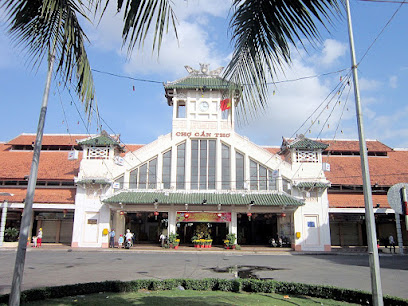
Chợ đêm Ninh Kiều
Discover the vibrant flavors and culture of Can Tho at Chợ Đêm Ninh Kiều, a bustling night market delighting visitors with local delicacies and crafts.
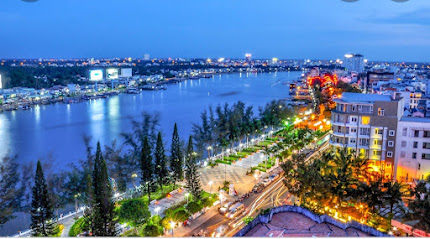
Đền thờ Vua Hùng
Discover the spiritual heritage of Vietnam at Đền thờ Vua Hùng, a serene center honoring the legendary Hùng Kings in Cần Thơ.
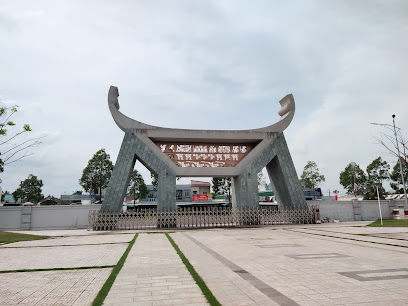
Azerai Can Tho
Discover unparalleled luxury at Azerai Can Tho, a serene resort hotel nestled along the breathtaking Mekong River, perfect for relaxation and cultural exploration.

Binh Thuy Temple
Discover the tranquility of Binh Thuy Temple in Can Tho, Vietnam - a beautiful blend of spirituality and cultural heritage awaits you.
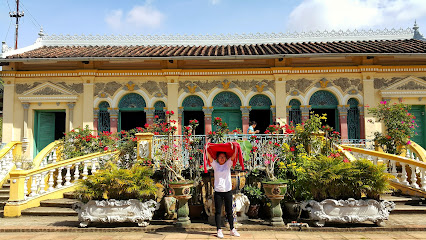
Military Zone 9 Museum
Explore the profound history of Vietnam at the Military Zone 9 Museum in Can Tho, where stories of bravery and resilience come to life.
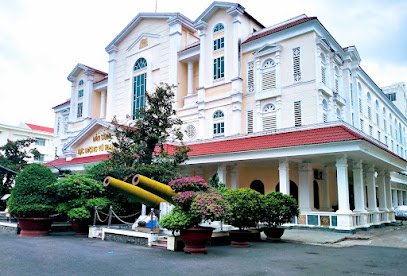
Unmissable attractions to see
Ninh Kieu Wharf
Experience the vibrant culture, delicious cuisine, and scenic beauty of Ninh Kieu Wharf, the heart of Can Tho's riverfront life.
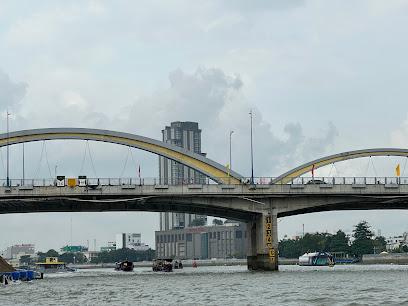
Trúc Lâm Phương Nam Zen Monastery
Discover tranquility at Trúc Lâm Phương Nam Zen Monastery in Cần Thơ, Vietnam—a serene retreat for meditation and spiritual exploration.
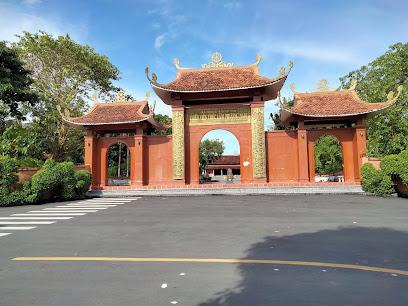
Luu Huu Phuoc Park
Discover the tranquil beauty of Luu Huu Phuoc Park in Can Tho, Vietnam, a perfect blend of nature and relaxation for every traveler.
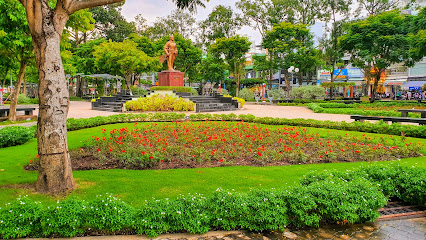
Cai Rang Floating Market
Discover the lively Cai Rang Floating Market in Can Tho, Vietnam - a vibrant hub of local commerce and culture on the Mekong Delta.
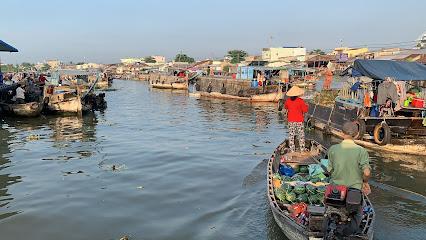
Chợ nổi
Experience the vibrant culture and flavors of Vietnam at Chợ nổi, Cần Thơ's iconic floating market, where tradition meets daily life.
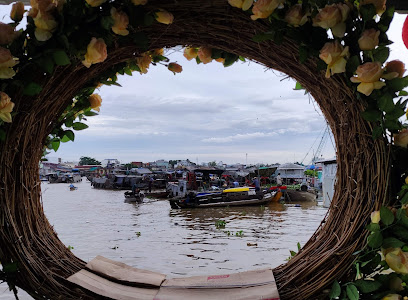
Binh Thuy ancient house
Experience the blend of Vietnamese heritage and French colonial architecture at Binh Thuy Ancient House, a true gem in Can Tho, Vietnam.
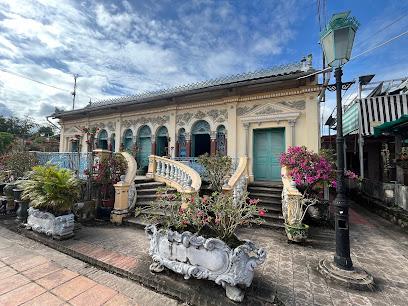
Chùa Ông
Explore the serene Chùa Ông in Cần Thơ, a must-visit Taoist temple showcasing intricate architecture and rich cultural heritage.
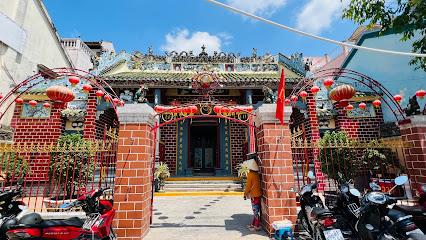
Military Zone 9 Museum
Explore Vietnam's military past at the Military Zone 9 Museum in Can Tho, where history and resilience come together in powerful exhibits.
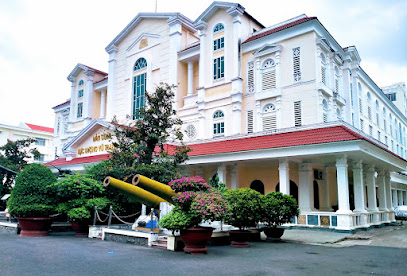
Cultural Park West
Discover the beauty of Cultural Park West in Can Tho, Vietnam, where nature meets culture in a tranquil urban oasis.
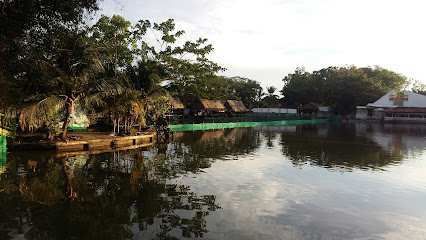
Bang Lang Stork Sanctuary
Explore the enchanting Bang Lang Stork Sanctuary, a must-visit wildlife refuge in Cần Thơ, where nature lovers can immerse themselves in stunning birdwatching.
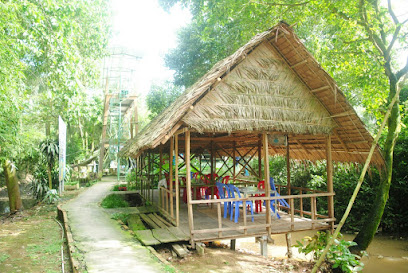
Bãi Tắm Cần Thơ
Discover tranquility and local culinary delights at Bãi Tắm Cần Thơ, a beautiful riverside beach in Vietnam's Mekong Delta.
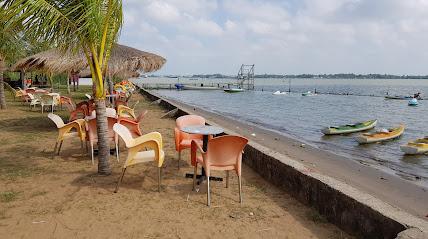
Vườn Ca Cao Mười Cương
Explore Vườn Ca Cao Mười Cương, a captivating farm household tour in Cần Thơ, Vietnam, where delicious fruits and cacao await your discovery.
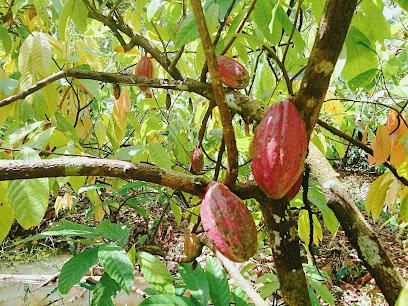
Nam Nha Pagoda
Experience peace and spirituality at Nam Nha Pagoda, a stunning Buddhist temple in Can Tho, Vietnam, surrounded by tranquil gardens and rich cultural heritage.
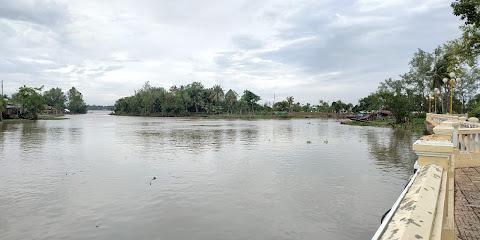
Relic Park Plums
Explore the rich history and scenic beauty of Relic Park Plums in Cần Thơ, Vietnam, a perfect blend of nature and local heritage.
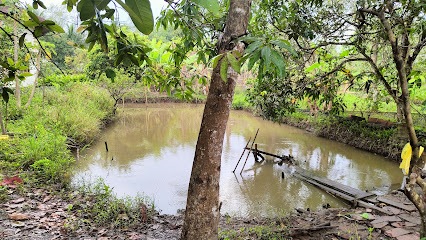
Quang Duc Pagoda
Discover the serene beauty of Quang Duc Pagoda, a hidden gem in Can Tho, where spirituality and rich cultural heritage come together.
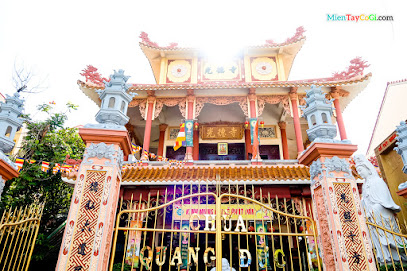
Essential places to dine
Nhà hàng Lúa Nếp
Discover the flavors of Vietnam at Nhà Hàng Lúa Nếp - where tradition meets taste in Cần Thơ.
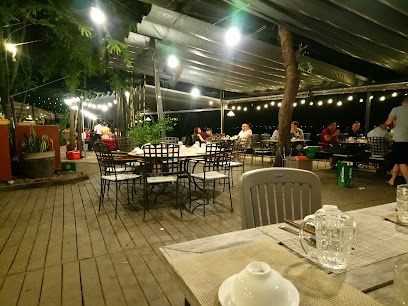
Hoa Su Restaurant
Discover authentic Vietnamese cuisine at Hoa Su Restaurant in Cần Thơ - a must-visit culinary destination for tourists!
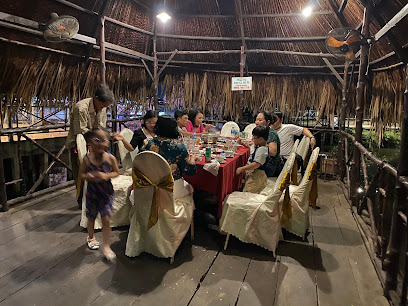
Khu Sinh Thái Ẩm Thực QUÊ MÌNH
Experience authentic Vietnamese flavors at Khu Sinh Thái Ẩm Thực QUÊ MÌNH in Cần Thơ - where nature meets culinary tradition.
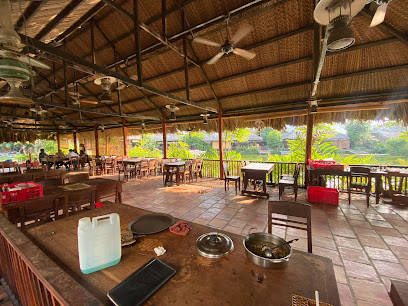
Sao Hôm Restaurant
Experience authentic Vietnamese cuisine at Sao Hôm Restaurant in Cần Thơ, where every dish tells a story of flavor and tradition.
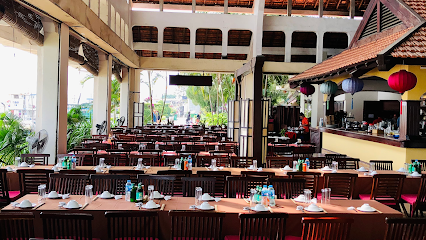
Hoa Tuoc
Experience authentic Vietnamese seafood at Hoa Tuoc in Cần Thơ – where flavors meet nature in an unforgettable dining adventure.
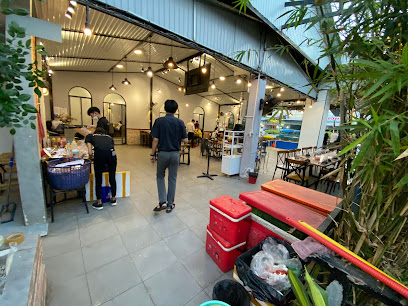
Can Tho Cruise Restaurant
Experience authentic Vietnamese cuisine with stunning Mekong River views at Can Tho Cruise Restaurant.
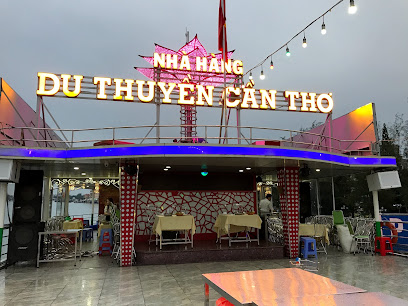
The Lighthouse
Discover exquisite Vietnamese cuisine at The Lighthouse in Cần Thơ - where every meal is a delightful experience amidst stunning views.
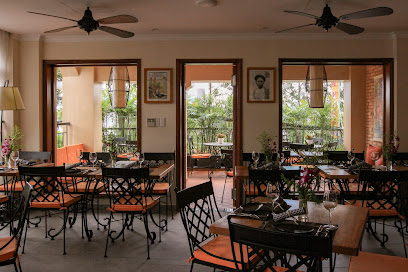
Phuong Nam Restaurant
Experience the fusion of Vietnamese and French cuisines at Phuong Nam Restaurant in Cần Thơ - where every meal tells a story.
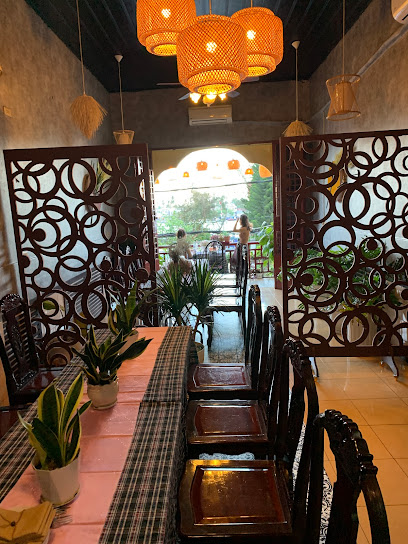
Nam Bộ Boutique Hotel & restaurants
Experience authentic Vietnamese hospitality at Nam Bộ Boutique Hotel & Restaurant, your gateway to cultural exploration and delightful dining in Cần Thơ.

Mekong 1965
Experience authentic Vietnamese flavors at Mekong 1965, where tradition meets modern dining in Cần Thơ.
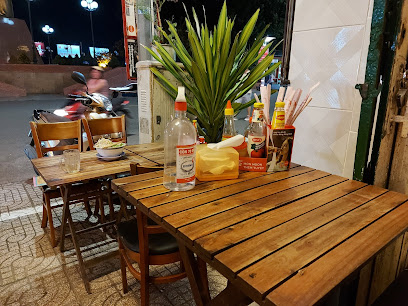
VADO Canteen - Nhà Hàng Nhỏ Vui Vẻ
Experience the vibrant flavors of Vietnam at VADO Canteen – your go-to spot for hot pot, bubble tea, and more in beautiful Cần Thơ.
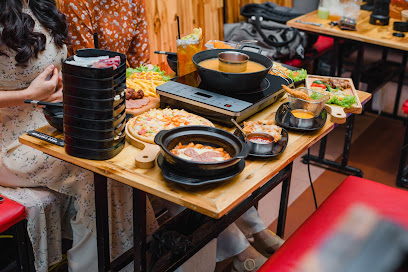
CÔNG TY MINH HÒA
Experience authentic Vietnamese flavors at CÔNG TY MINH HÒA in Cần Thơ - a culinary delight showcasing local traditions and fresh ingredients.
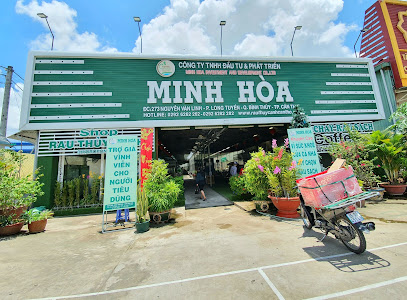
L'Escale
Experience authentic Vietnamese flavors at L'Escale, a cozy restaurant-café in Can Tho known for its fresh ingredients and inviting atmosphere.
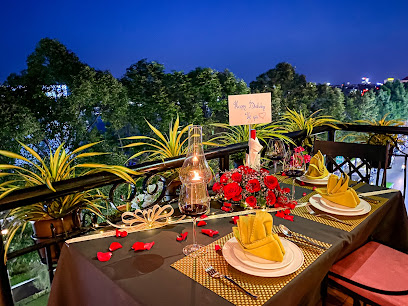
Huu Vui Vegetarian
Discover vibrant vegetarian cuisine at Huu Vui Vegetarian in Cần Thơ - where flavor meets health in every bite.
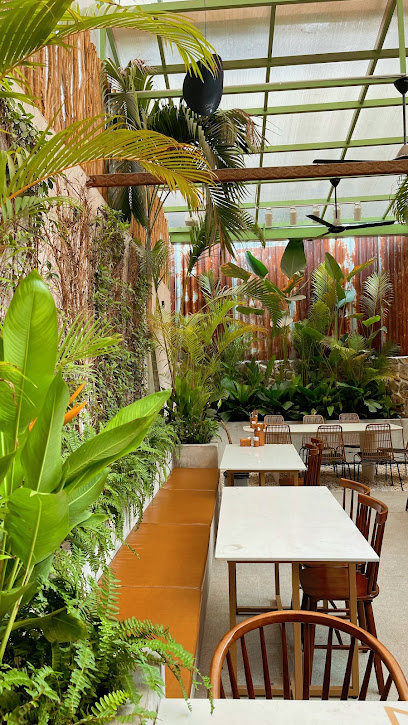
Spirito Restaurant & Bar
Experience culinary excellence at Spirito Restaurant & Bar in Cần Thơ – where Western flavors meet Vietnamese hospitality.
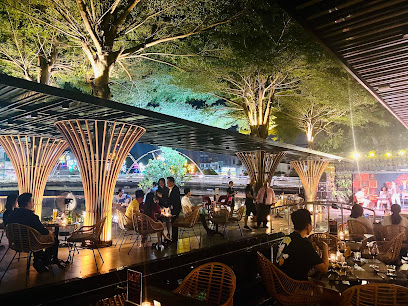
Markets, malls and hidden boutiques
MAI Store SON MÔI Quà Tặng MỸ PHẨM CT
Explore MAI Store SON MÔI in Cần Thơ for unique gifts and quality cosmetics that celebrate Vietnamese craftsmanship and culture.
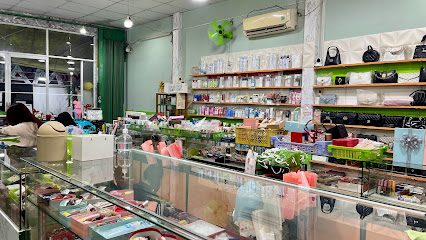
Bella Shop
Explore Bella Shop in Cần Thơ for unique gifts and traditional Vietnamese crafts that capture the spirit of your travels.
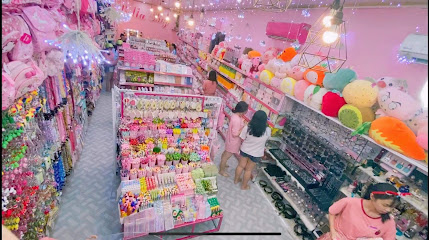
Shop Hoa len Cần Thơ (Keva Len Handmade)
Discover unique handcrafted gifts at Keva Len Handmade, a charming shop in Cần Thơ showcasing the beauty of Vietnamese craftsmanship.
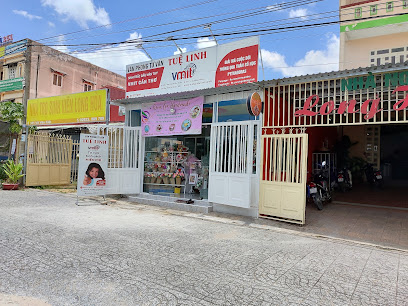
Nhóc Giftshop Cần Thơ
Explore Nhóc Giftshop in Cần Thơ for unique Vietnamese souvenirs and handcrafted treasures that capture the essence of local culture.
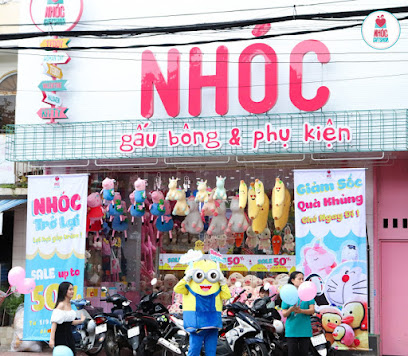
Shop Thời Trang Bí Đỏ
Explore vibrant fashion at Shop Thời Trang Bí Đỏ, Cần Thơ’s premier clothing store for stylish apparel and unique local designs.
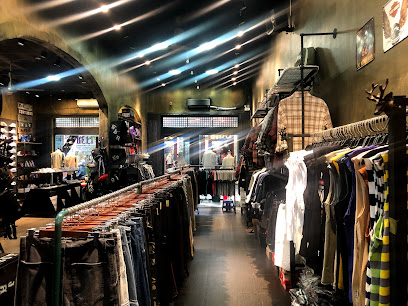
Werota Shop Kpop
Discover the essence of K-pop fashion at Werota Shop Kpop in Cần Thơ, where trendy accessories meet iconic pop culture.

Lyly Sốp Cần Thơ
Explore the stylish women's clothing collection at Lyly Sốp Cần Thơ, a must-visit shopping destination in Vietnam's vibrant Ninh Kiều district.
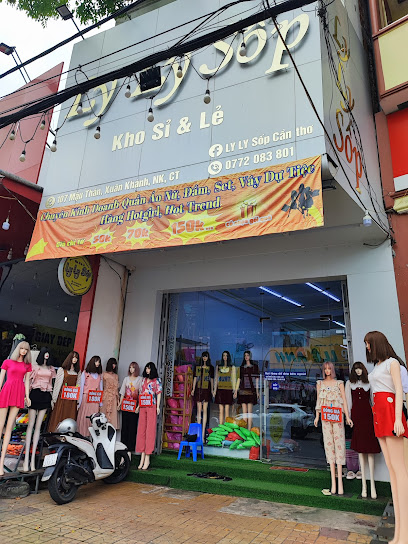
Moss Cần Thơ Nguyễn Việt Hồng - Phụ kiện Quà tặng
Explore Moss Cần Thơ for unique gifts, local treasures, and fashionable accessories in the heart of Vietnam's vibrant Cần Thơ city.
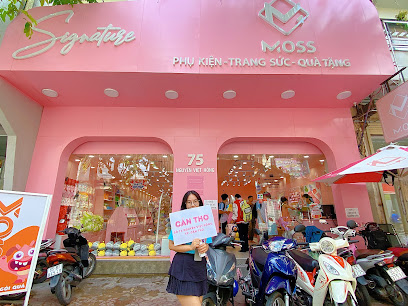
Moss Cần Thơ Đại Lộ Hoà Bình - Phụ kiện Quà tặng
Discover the charm of Cần Thơ at Moss, your go-to gift shop for unique cosmetics, fashion accessories, and local treasures.
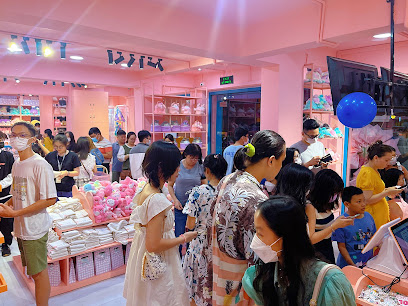
TaKi House
Explore TaKi House in Cần Thơ for unique gifts, traditional crafts, and a taste of Vietnamese culture.
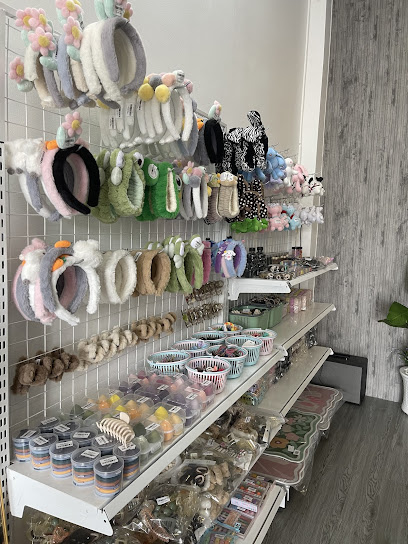
Trung Phong
Explore the enchanting world of antiques at Trung Phong Antique Store in Cần Thơ, where history and craftsmanship come alive.
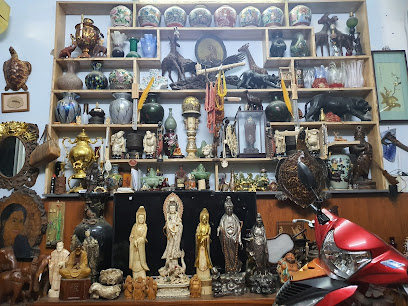
BOBO SHOP
Explore BOBO SHOP in Cần Thơ for a unique selection of electronics and gadgets that cater to every tech enthusiast's needs.

Honey Shop Cần Thơ
Explore the vibrant Honey Shop Cần Thơ for unique clothing and accessories that reflect the rich culture of Vietnam.
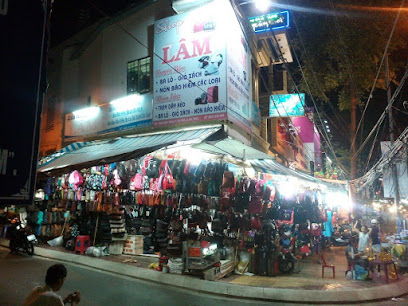
MUSE Vintage
Explore MUSE Vintage in Cần Thơ for unique, sustainable fashion that tells a story with every piece.

Miniso Lotte Cần Thơ
Explore Miniso Lotte Cần Thơ for a unique shopping experience filled with delightful souvenirs and trendy lifestyle products that capture the essence of Vietnam.
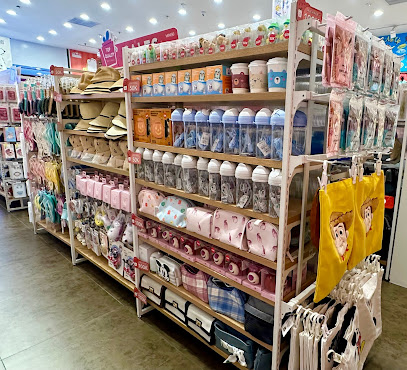
Essential bars & hidden hideouts
Helios' Cocktail
Experience the vibrant nightlife of Cần Thơ at Helios' Cocktail, where innovative drinks and a lively atmosphere await.
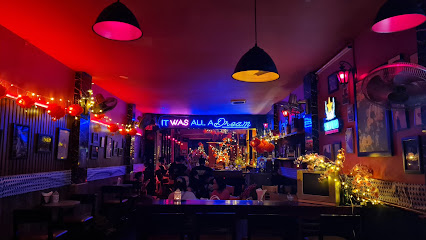
Ninh Kieu Sky Bar
Experience the vibrant nightlife at Ninh Kieu Sky Bar, where captivating views and exquisite cocktails create the perfect evening ambiance.
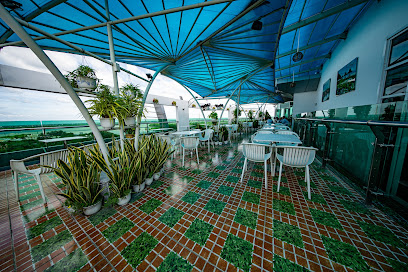
Cáo & Cừu - Beer Garden
Discover the vibrant atmosphere of Cáo & Cừu, a lively beer garden in Cần Thơ offering a wide selection of drinks and delicious local bites.
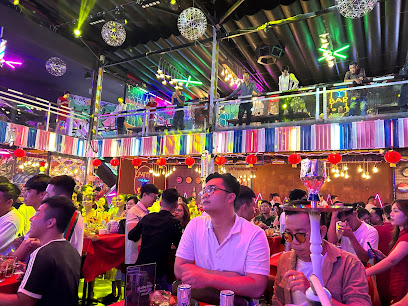
LEGI Cocktails & Dining
Experience the vibrant flavors and inviting atmosphere at LEGI Cocktails & Dining in Cần Thơ, Vietnam, where every meal is a celebration.
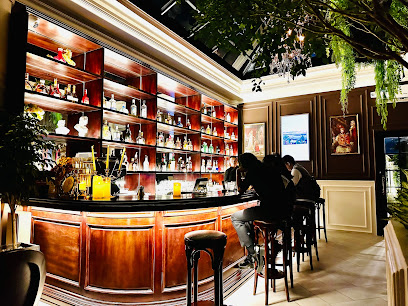
Dreibar Craftbeer & Cocktail
Discover the vibrant atmosphere and exquisite drinks at Dreibar Craftbeer & Cocktail, the heart of Cần Thơ's nightlife.
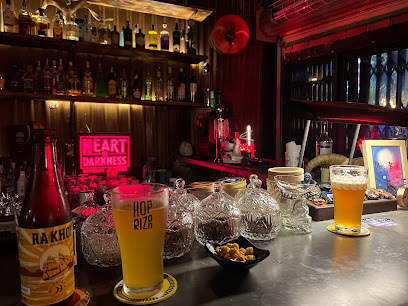
The Heo Bistro
Discover the lively atmosphere and innovative cocktails at The Heo Bistro, a premier cocktail bar in Can Tho, Vietnam.
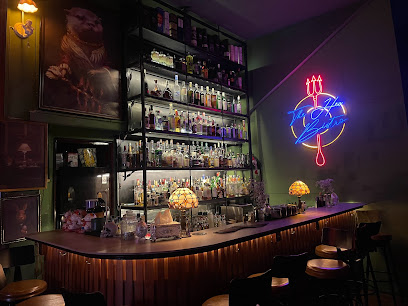
Spirito Restaurant & Bar
Discover Spirito Restaurant & Bar, where Western cuisine meets vibrant nightlife in the heart of Cần Thơ, Vietnam.
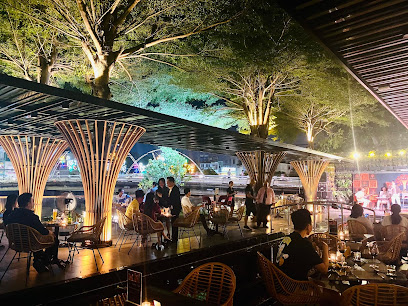
Dusk Till Dawn Cocktail Bar
Discover the vibrant nightlife at Dusk Till Dawn Cocktail Bar in Cần Thơ, where expertly crafted cocktails meet a captivating atmosphere.
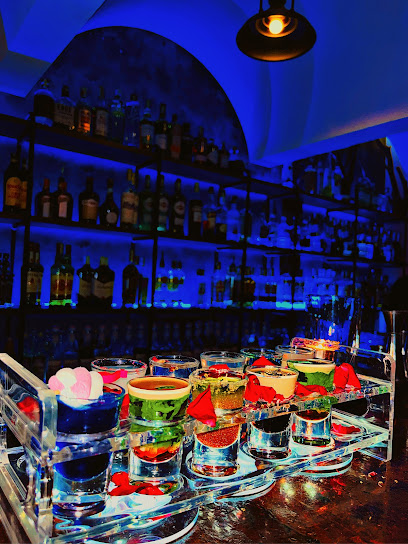
Déjà Vu Cocktail Bar
Discover the lively Déjà Vu Cocktail Bar in Cần Thơ, where exceptional cocktails meet a vibrant atmosphere for an unforgettable night out.
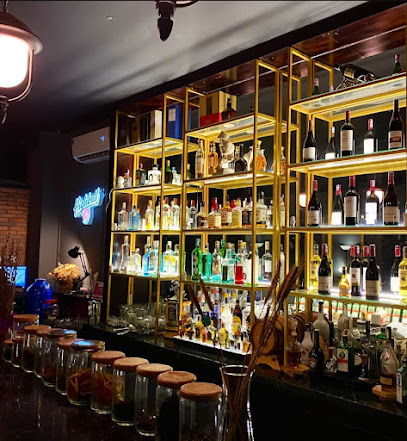
Hiraeth Cocktail Bar & Kitchen
Discover the vibrant flavors of Hiraeth Cocktail Bar & Kitchen in Cần Thơ, where innovative cocktails meet exquisite cuisine in a lively atmosphere.
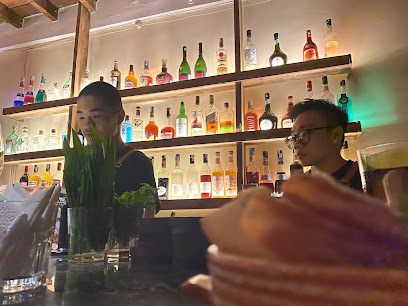
N-NICE' Cocktails
Explore Cần Thơ's vibrant nightlife at N-NICE' Cocktails, where expertly crafted drinks and a lively atmosphere await every visitor.
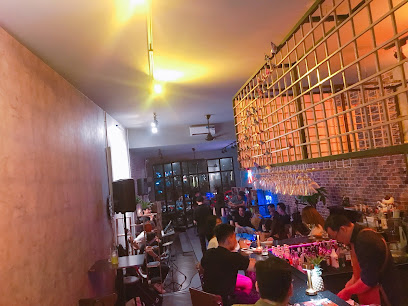
Iris Sky Bar
Discover the breathtaking views and vibrant atmosphere of Iris Sky Bar, the ultimate rooftop destination in Cần Thơ for a unique drinking experience.
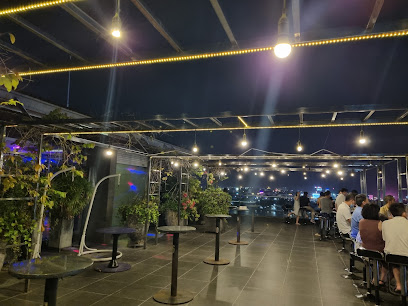
Divergent Cocktail
Experience the vibrant flavors of Cần Thơ at Divergent Cocktail, where innovative drinks and a lively atmosphere await every visitor.
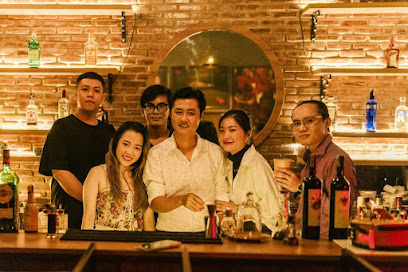
In The World Cần Thơ
Experience the vibrant brewpub culture in Cần Thơ with unique craft beers and delicious local cuisine at In The World Cần Thơ.
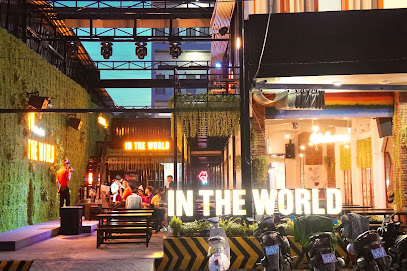
Hisoka Bar
Experience the vibrant nightlife of Cần Thơ at Hisoka Bar, where unique cocktails and a lively atmosphere await you.
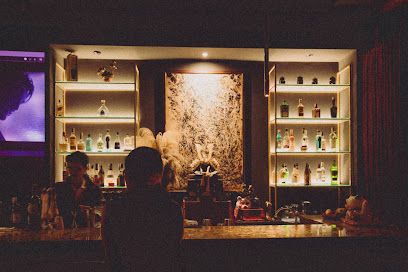
Local Phrases
-
- HelloXin chào
[sin chow] - GoodbyeTạm biệt
[tahm byet] - YesCó
[koh] - NoKhông
[kohng] - Please/You're welcomeVui lòng
[vooi long] - Thank youCám ơn
[kahm uhn] - Excuse me/SorryXin lỗi
[sin loy] - How are you?Bạn khỏe không?
[bahn kweh kohng] - Fine. And you?Tốt. Còn bạn?
[toht. kohn bahn] - Do you speak English?Anh/Chị có nói tiếng Anh không?
[ahn/chi koh noy ting ahn kohng] - I don't understandTôi không hiểu
[toy kohng hye-u]
- HelloXin chào
-
- I'd like to see the menu, pleaseCho tôi xem menu, vui lòng
[cho toy sem menu, vooi long] - I don't eat meatTôi không ăn thịt
[toy kohng an tit] - Cheers!Chúc sức khỏe!
[chook sook kweh] - I would like to pay, pleaseTôi muốn thanh toán, vui lòng
[toy muhn thanh toan, vooi long]
- I'd like to see the menu, pleaseCho tôi xem menu, vui lòng
-
- Help!Cứu!
[kew] - Go away!Đi đi!
[dee dee] - Call the Police!Gọi cảnh sát!
[goy keng saht] - Call a doctor!Gọi bác sĩ!
[goy bahk see] - I'm lostTôi lạc đường
[toy lahk doo-ong] - I'm illTôi bị ốm
[toy bee ohm]
- Help!Cứu!
-
- I'd like to buy...Tôi muốn mua...
[toy muhn mwa] - I'm just lookingTôi chỉ xem
[toy chih sem] - How much is it?Bao nhiêu tiền?
[bah-oo nyeu tee-en] - That's too expensiveĐắt quá
[daht kwah] - Can you lower the price?Anh/Chị có thể giảm giá không?
[ahn/chi koh te zahm zah kohng]
- I'd like to buy...Tôi muốn mua...
-
- What time is it?Bây giờ là mấy giờ?
[bahy zoh la may zoh] - It's one o'clockBây giờ là một giờ
[bahy zoh la moot zoh] - Half past (10)Rưỡi (10)
[rwuh-ee (10)] - MorningBuổi sáng
[bwoi sang] - AfternoonBuổi chiều
[bwoi chieu] - EveningBuổi tối
[bwoi toy] - YesterdayHôm qua
[hohm kwa] - TodayHôm nay
[hohm nai] - TomorrowNgày mai
[ngai mai] - 1Một
[moot] - 2Hai
[high] - 3Ba
[bah] - 4Bốn
[bohn] - 5Năm
[nahm] - 6Sáu
[sow] - 7Bảy
[bahy] - 8Tám
[tahm] - 9Chín
[cheen] - 10Mười
[moo-ee]
- What time is it?Bây giờ là mấy giờ?
-
- Where's a/the...?Chỗ...ở đâu?
[choh...uh daow] - What's the address?Địa chỉ là gì?
[dih-ah chee la zee] - Can you show me (on the map)?Anh/Chị có thể chỉ cho tôi (trên bản đồ) không?
[ahn/chi koh te chih cho toy (trern bahn doh) kohng] - When's the next (bus)?Khi nào là chuyến xe buýt kế tiếp?
[khee nah-oh lah chwee-en se buh-eet keh tee-ep] - A ticket (to ....)Một vé (đến ....)
[moot veh (den ....)]
- Where's a/the...?Chỗ...ở đâu?
History of Can Tho
-
Can Tho, located in the heart of the Mekong Delta, has a rich history dating back to the early settlement periods during the Funan Kingdom around the 1st century AD. The fertile land and extensive waterways made it an ideal location for agriculture and trade, fostering the growth of early communities.
-
From the 6th to the 8th centuries, the Mekong Delta region, including Can Tho, was heavily influenced by the Khmer Empire. This period saw the construction of numerous temples and the spread of Theravada Buddhism, elements of which still influence the cultural landscape of Can Tho today.
-
During the 18th and 19th centuries, Can Tho became part of the Nguyen Dynasty's domain. The area was developed further for rice cultivation, which remains a staple of its economy. The Nguyen rulers also fortified the region to protect against external threats, contributing to Can Tho's strategic significance.
-
In the mid-19th century, Can Tho fell under French colonial rule as part of Cochinchina. The French established infrastructure for exporting rice and other local produce, leading to the construction of canals, roads, and public buildings. This era left a lasting architectural legacy in Can Tho, visible in its colonial-style buildings.
-
Can Tho played a significant role during the Vietnam War due to its strategic location in the Mekong Delta. The city was a major base for both the South Vietnamese and U.S. military operations. The conflict left deep scars on the community, but also led to the development of important infrastructure, including improved transportation networks.
-
After the reunification of Vietnam in 1975, Can Tho underwent a period of reconstruction and development. The government focused on rebuilding the war-torn infrastructure and boosting the local economy. The establishment of Can Tho University in 1966 played a crucial role in transforming the city into an educational hub in the Mekong Delta.
-
Today, Can Tho is known as the 'Capital of the West' and is a bustling city that blends traditional Vietnamese culture with modern development. The city is renowned for its floating markets, particularly Cai Rang, which attract tourists from around the world. Can Tho continues to be a vital agricultural and economic center, reflecting its historical roots and ongoing growth.
Can Tho Essentials
-
Can Tho is located in the Mekong Delta region of Vietnam. The nearest international airport is Can Tho International Airport (VCA), which has direct flights from major cities like Hanoi, Ho Chi Minh City, Bangkok, and Taipei. From the airport, you can take a taxi or a shuttle bus to the city center, which is approximately 10 kilometers away. Alternatively, buses from Ho Chi Minh City to Can Tho operate frequently and the journey takes around 3-4 hours.
-
Can Tho has a variety of transportation options. Taxis and motorbike taxis (xe om) are readily available and are a convenient way to get around the city. For a more local experience, you can use the local buses, which connect different parts of the city and surrounding areas. Renting a motorbike or bicycle is also a popular option for tourists who prefer to explore at their own pace. For river tours, there are numerous boat operators offering trips to the floating markets and other attractions.
-
The official currency in Vietnam is the Vietnamese Dong (VND). Credit cards are accepted in many hotels, restaurants, and larger shops, but it is advisable to carry cash, particularly for smaller establishments and markets. ATMs are widely available in Can Tho, and currency exchange services can be found at banks and exchange kiosks.
-
Can Tho is generally a safe city for tourists, but it is important to take standard precautions. Avoid walking alone at night in unfamiliar areas and keep an eye on your belongings in crowded places, such as markets and bus stations. Petty theft and scams targeting tourists can occur, particularly in busy tourist areas. Always use reputable transportation services and be cautious when accepting unsolicited offers for tours or services.
-
In case of emergency, dial 113 for police, 114 for fire, and 115 for medical emergencies. Can Tho has several hospitals and clinics that can provide medical assistance. It is advisable to have travel insurance that covers medical emergencies. For minor health issues, pharmacies are readily available throughout the city where you can purchase over-the-counter medications.
-
Fashion: Do dress modestly, especially when visiting religious sites. Avoid wearing revealing clothing. Religion: Do respect local customs and traditions. Always remove your shoes when entering temples and pagodas. Public Transport: Do be respectful and give up your seat to elderly passengers. Don't eat or drink on public transport. Greetings: Do greet people with a slight bow or a handshake. A smile and a polite 'Xin chào' (hello) are also appreciated. Eating & Drinking: Do try local delicacies and accept food offerings graciously. Don't refuse hospitality, as it is considered impolite.
-
To experience Can Tho like a local, visit the Cai Rang Floating Market early in the morning to see a bustling trade scene on the river. Try a bowl of 'Hu Tieu' (a local noodle dish) at a street food stall. Engage with locals, as they are often friendly and willing to share stories about their culture and way of life. Don't miss a sunset cruise on the Mekong River for a breathtaking view of the delta.
Trending Landmark in Can Tho
-
Trúc Lâm Phương Nam Zen Monastery
-
Luu Huu Phuoc Park
-
Cai Rang Floating Market
-
LOTTE Mart Can Tho
-
Sense City Can Tho
-
My Khanh Tourist Village
-
Song Hau Park
-
Victoria Can Tho Resort
-
Binh Thuy ancient house
-
Can Tho Market
-
Chợ đêm Ninh Kiều
-
Đền thờ Vua Hùng
-
Azerai Can Tho
-
Binh Thuy Temple
-
Military Zone 9 Museum
Nearby Cities to Can Tho
-
Things To Do in Ho Chi Minh City
-
Things To Do in Vung Tau
-
Things To Do in Kep
-
Things To Do in Kampot
-
Things To Do in Phnom Penh
-
Things To Do in Phu Quoc
-
Things To Do in Sihanoukville
-
Things To Do in Kratie
-
Things To Do in Phan Thiet
-
Things To Do in Koh Rong
-
Things To Do in Mui Ne
-
Things To Do in Koh Kong
-
Things To Do in Dalat
-
Things To Do in Buon Ma Thuot
-
Things To Do in Siem Reap










